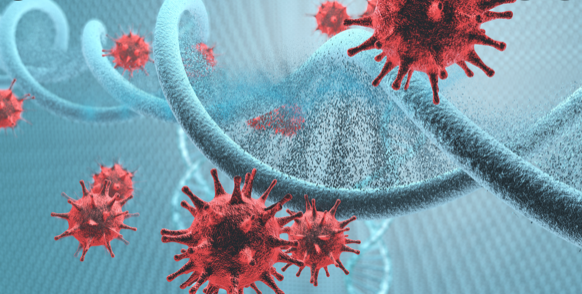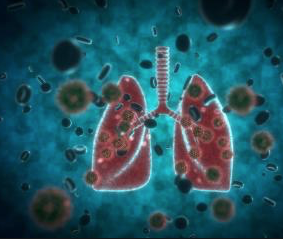Strong evidence of genetic predisposition for COVID-19 disease

Last Updated on February 1, 2021 by Joseph Gut – thasso
January 30, 2021 – The COVID-19 pandemic has caused considerable morbidity and mortality, and has resulted in the death of over a million people to date. The clinical manifestations of Covid-19 disease, caused by its underlying virus SARS-CoV-2, vary widely in severity, ranging from no or mild symptoms to rapid  progression to respiratory failure. Early in the pandemic, it became clear that advanced age is a major risk factor, as well as being male and some co-morbidities. These risk factors, however, do not fully explain why some people have no or mild symptoms whereas others have severe symptoms. Thus, one expects that genetic risk factors may have a role in disease progression.
progression to respiratory failure. Early in the pandemic, it became clear that advanced age is a major risk factor, as well as being male and some co-morbidities. These risk factors, however, do not fully explain why some people have no or mild symptoms whereas others have severe symptoms. Thus, one expects that genetic risk factors may have a role in disease progression.
Clinically, most prominently host-mediated lung inflammation is present, and drives mortality, in critical Covid-19 illness caused by SARS-C0V-2. Host genetic variants associated with critical illness may identify mechanistic targets for therapeutic development. Here, a recent publication summarizes the results of the genome-wide association study (GWAS) from within GenOMICC (Genetics Of Mortality In Critical Care) in 2244 critically ill Covid-19 patients from 208 UK intensive care units (ICUs). The study identified and replicated novel genome-wide significant associations, on chr12q24.13 (rs10735079, p=1.65 ××10-8) in a gene cluster encoding antiviral restriction enzyme activators (OAS1, OAS2, and OAS3), on chr19p13.2 (rs2109069, p=2.3 ×× 10-12) near the gene encoding tyrosine kinase 2 (TYK2), on chr19p13.3 (rs2109069, p=3.98 ×× 10-12) within the gene encoding dipeptidyl peptidase 9  (DPP9), and on chr21q22.1 (rs2236757, p=4.99 ×× 10-8) in the interferon receptor gene IFNAR2.
(DPP9), and on chr21q22.1 (rs2236757, p=4.99 ×× 10-8) in the interferon receptor gene IFNAR2.
Potential targets for repurposing of licensed medications have been identified also in the study. Using Mendelian randomisation the researchers found evidence in support of a causal link from low expression of IFNAR2, and high expression of TYK2, to life-threatening disease. Furthermore, transcriptome-wide association in lung tissue revealed that high expression of the monocyte/macrophage chemotactic receptor CCR2 is associated with severe Covid-19 disease. These study results identify robust genetic signals relating to key host antiviral defence mechanisms, and mediators of inflammatory organ damage in Covid-19 disease. Both mechanisms may be amenable to targeted treatment with existing drugs. Large-scale randomised clinical trials will be essential before any change to clinical practice.
These findings are largely in line with an earlier preliminary report posted to MedRxiv, where researchers had homed in on apparently the same three loci as found in the above study: one within the DPP9 gene, which encodes dipeptidyl peptidase 9, one within a gene cluster encoding the antiviral restriction enzyme activators OAS1, OAS2, and OAS3, and one in the interferon receptor gene IFNAR2; thasso had reported on these early findings also.
A recent genetic association study identified a gene cluster on chromosome 3 as a risk locus for respiratory failure after infection with severe acute respiratory syndrome coronavirus 2 (SARS-CoV-2). A separate study from within the COVID-19 Host Genetics Initiative comprising 3,199 hospitalized patients with Covid-19 disease and control individuals showed that the identified clusters are the major genetic risk factors for severe symptoms after SARS-CoV-2 infection and hospitalization. Interestingly, they seem to be inherited from Neanderthals and are carried by around 50% of people in South Asia and by around 16% of people in Europe.
Follow here a sequence on genetic factors contributing to the severity of Covid-19 disease:

